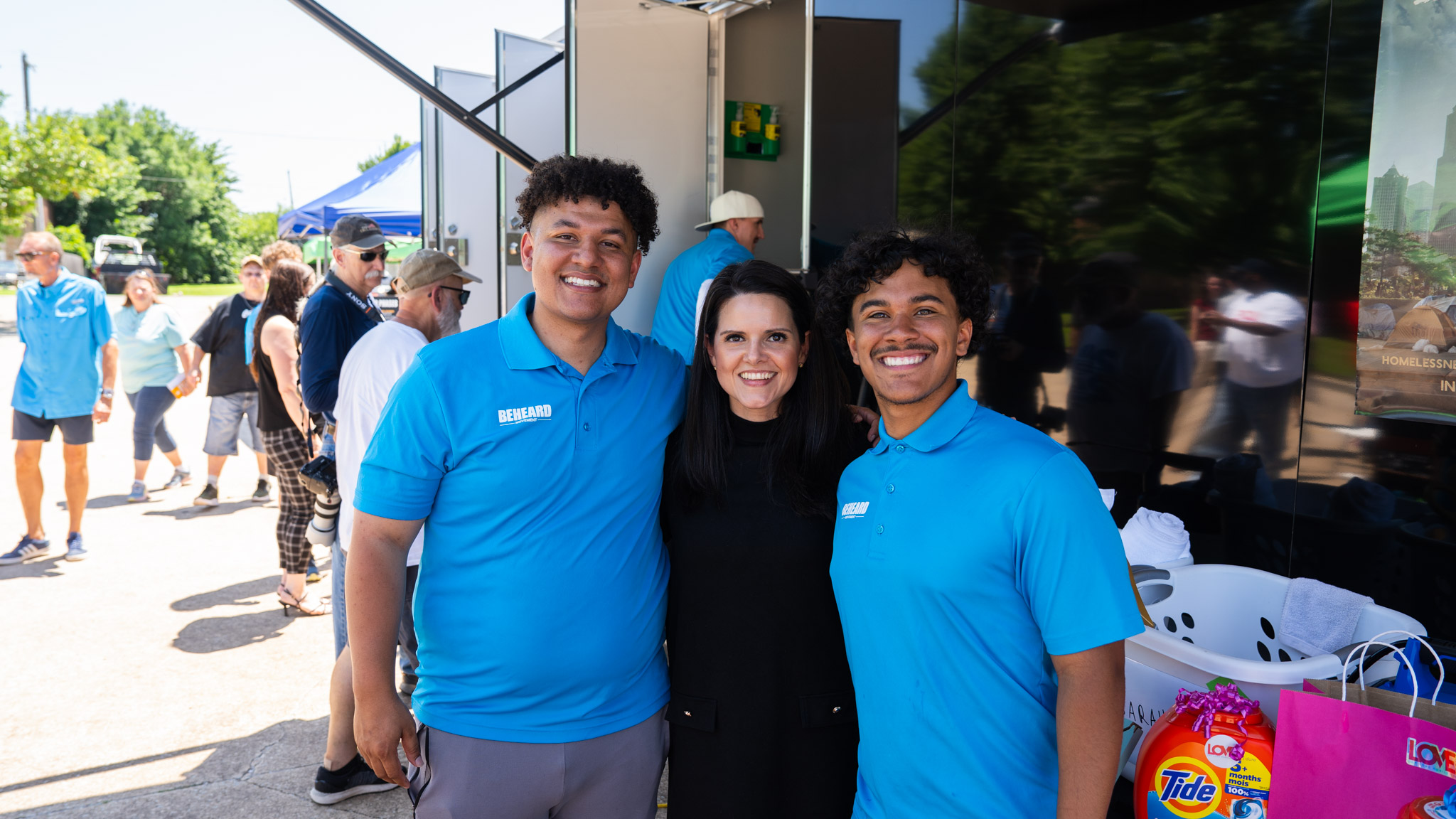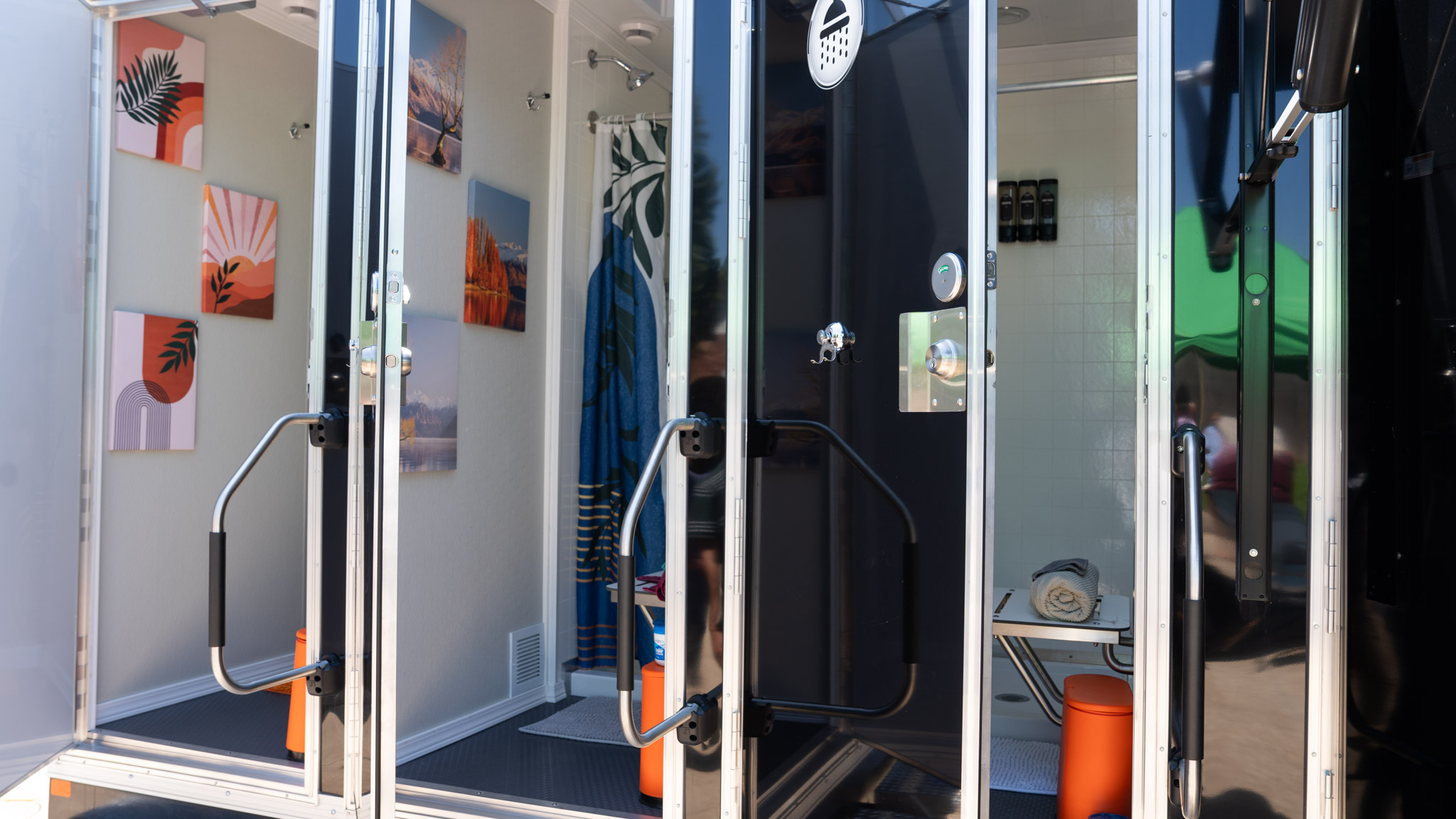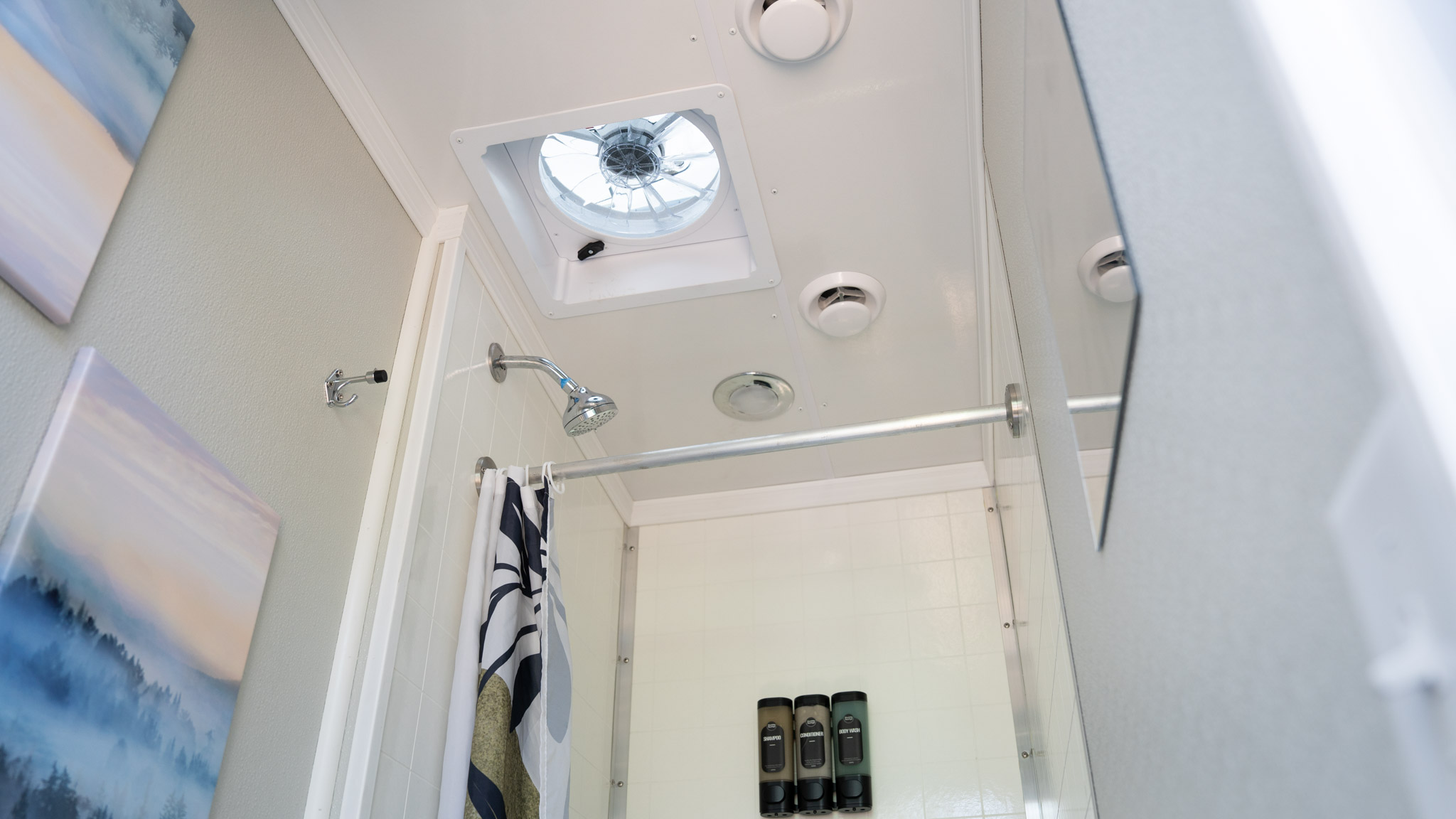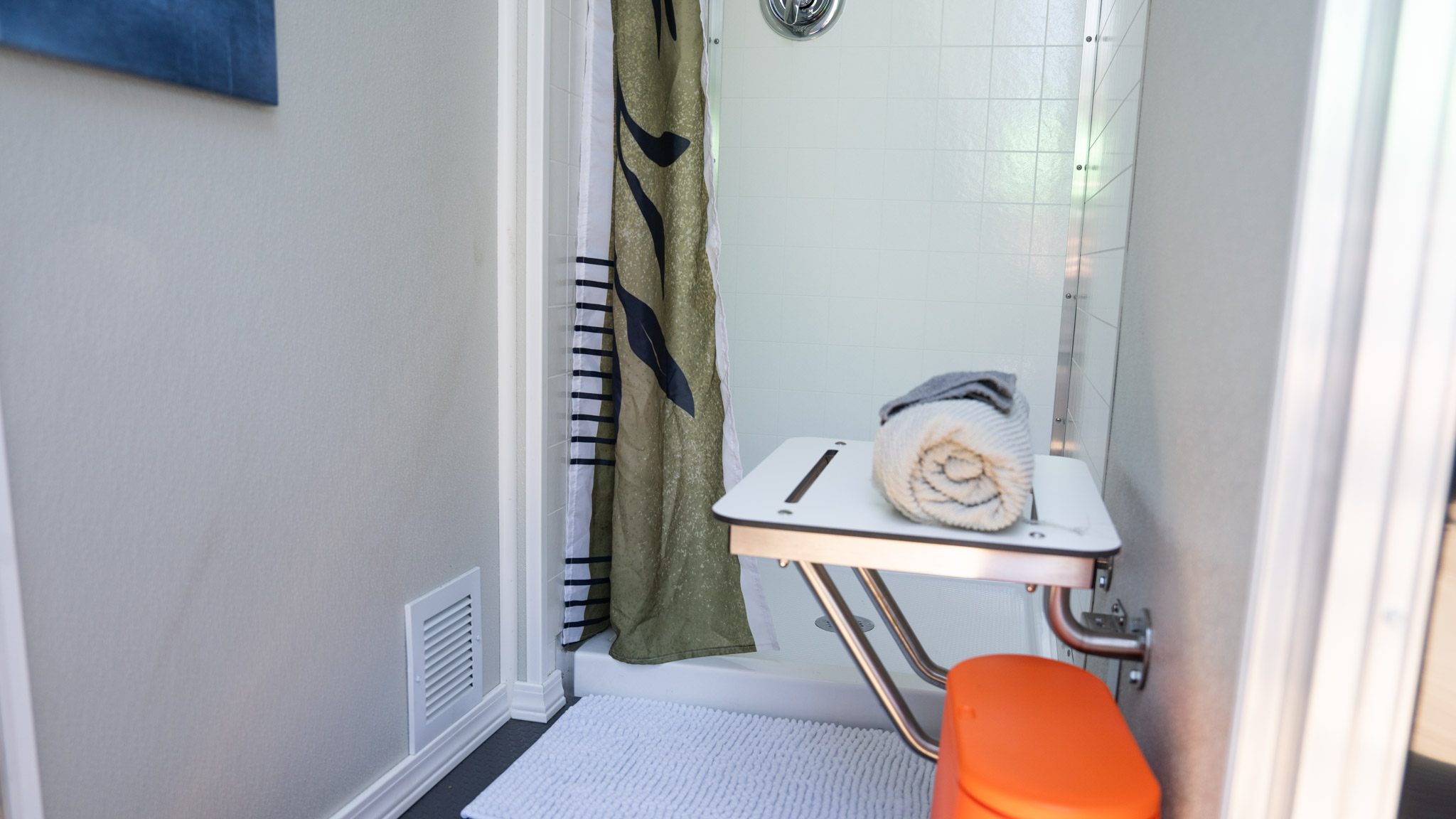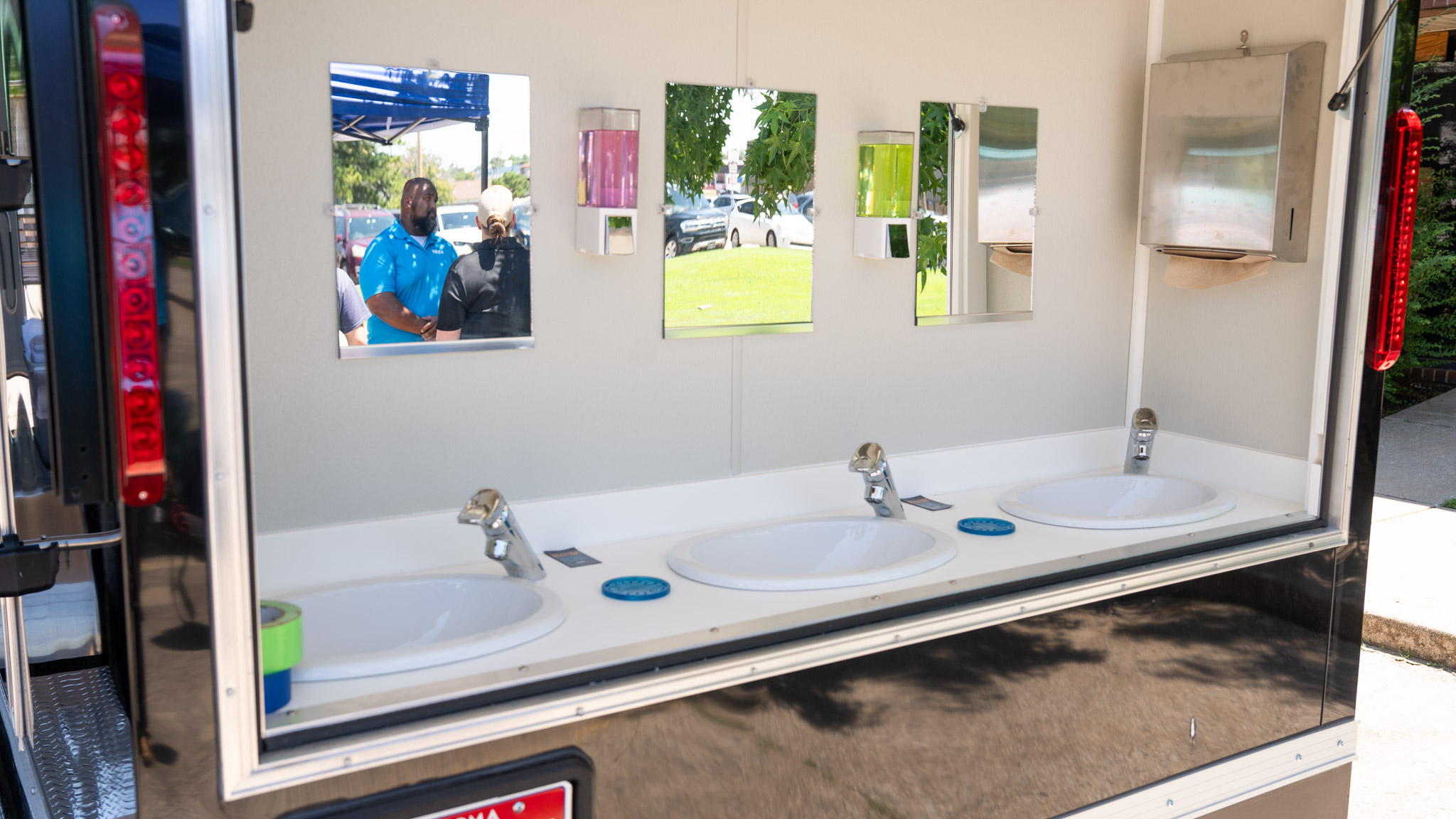BeHeard Movement Expands to Oklahoma City
After providing services and resources to Tulsa’s homeless population since 2021, BeHeard Movement — a nonprofit that operates Oklahoma’s only mobile drop-in center, has made its way to Oklahoma City.
Their mobile drop-in center offers laundry services, phone charging stations, a service provider office, outdoor sinks, haircuts and perhaps most notably — showers. A normal brick-and-mortar drop-in center provides similar resources, but travel is a constant barrier to those experiencing homelessness. In East Tulsa, the nearest service providers are about a 4-5 hour walk.
Those in Oklahoma City face the same barriers. BeHeard flips the dynamic and brings services directly to the folks who need them
Many guests say they haven’t been able to shower in days, weeks, or even months. 99% of guests say they are more likely to engage with resources after a shower due to boosted confidence — highlighting the unique gap that BeHeard fills.
AFF awarded a grant for just over $1 million to support BeHeard Movement with an additional mobile trailer that includes three private showers, four washers and dryer machines, an office for service providers, three outdoor sinks, and 24 phone charging stations. Funds will also be used to support day-to-day operational costs, staff salaries, and the BeHeard Job Program.
As we celebrate alongside the organization for their ribbon-cutting ceremony in Oklahoma City, we conducted a Q&A with BeHeard Movement’s Founder and President, Evan Dougoud.
Scroll through images
Q: What unique challenges does Oklahoma City present when compared to Tulsa? What similarities do you see between the two cities?
A: OKC and Tulsa are similar in many ways, but also very different. One of the biggest challenges in OKC is its size. The city is so spread out that it takes more time, innovation, and support to reach people compared to a smaller or more condensed city like Tulsa, where services are often closer together.(In terms of land mass) In OKC, the distance means that resources can feel even more out of reach for those experiencing homelessness. Despite the differences in layout, both cities share a common issue lack of access to basic services, especially drop-in services like showers and laundry. On the east side of Tulsa, the nearest shelter and shower is a 4–5 hour walk. In some parts of OKC, it’s just as far, if not farther. Going months without a shower can have serious effects, including increased depression, anxiety, and to my assumption involvement with the justice system. Recently, a guest stepped into our mobile shower trailer in OKC and asked, “How do I turn the water on? Sorry, it’s been a while.” That moment reminds us there are neighbors in both cities who have gone far too long without dignity, stability, or support. They’ve lost access to even the most basic things in life which have affected every part of their life.
Q: How are the trailers assembled? Did you assemble them yourselves?
A: We worked with our good friends at Comfort of Homes, a company that specializes in building trailers. We were able to sit down with them, share our vision, and design the layout together and they brought it to life (which is super cool). The trailer we use now is 31 feet long and includes 3 private showers, 4 washers and dryers, 28 phone charging stations, a small office space, and 3 outdoor sinks. We designed it to be a true one-stop shop for people experiencing homelessness. Our goal is to eventually add 3 more trailers in OKC so we can serve different areas of the city at the same time. This would help us show up more consistently and reach more people. For the next trailer, we’re hoping to include 4 showers, 6 washers and dryers, a small computer lab, outdoor clothing racks, and additional handwashing stations.
Q: How do you source the water for your shower and laundry trailers?
A: This trailer is built with a direct water connection, which means we can hook up to almost any water source like an outdoor faucet or hose connection and start providing services right away. It’s a simple setup that allows us to be flexible and serve in a variety of locations.
Q: We love your social media presence. What role does it play for an organization like BeHeard?
A: Social media is incredibly powerful when used with the right intentions. Everyone is on their phones and scrolling, so we take our social media presence seriously because we’ve seen how much it can impact the people we serve and help change the stigma around homelessness. It’s one of the main ways we spread awareness. In fact, social media has really been the heart of how donors, volunteers, and even our guests first learn about BeHeard. Our Instagram has over 46,000 followers, and we’ve received support from people all over the country—from Florida to Virginia to California—and even as far as London, all working together to make a difference in Tulsa and OKC. We hope one day to start a program where we can help nonprofits with their social media.
Q: Is there a success story from Oklahoma City that stands out to you already?
A: Since we just launched in Oklahoma City, we don’t have any housing success stories yet but we’ve already seen powerful moments. Just last week, we served a guest who hadn’t had a shower in two months. After her shower, she came out emotional and said, “You just have no idea…” She shared how people roll down their windows to say hurtful things and how she’s been mistreated by police all because she doesn’t look clean like everyone else. It’s something many take for granted, but for our guests, it’s an emotional time.. The simple power of a shower.
Q: What servicies do you not currently provide but would like to in the future? What are the barriers?
A: This is a big question haha, and I love dreaming, so I’ll share a few ideas. Right now, we partner with 3 to 5 organizations at each outreach to offer different types of support, like housing, medical care, and mental health services. But one thing we don’t currently have in our BeHeard OKC Team is our own in-house case management team. Having just two full-time case managers on staff would make a huge difference. It would allow us to provide consistent case management at every single outreach, which means when a guest comes out of the shower feeling good, there’s someone right there to help guide them to next steps—whether that’s getting an ID, applying for housing, or finding mental health support. Many of our guests don’t have a case manager at all, especially in the areas we serve that don’t have many resources. That’s a gap we see every week and we want to fill it.
In Oklahoma City, our long-term dream is to build a brick-and-mortar drop-in center in a part of town that doesn’t currently have services. We also want to eventually operate four mobile drop-in center trailers across the city at the same time, so that every part of OKC has access to basic services like showers, laundry, phone charging, and case management every single day. We’ve also created our own CRM system to track our impact. It allows us to follow shower and laundry use, guest profiles, case notes, data and outcomes. We’re constantly evaluating our model, and it’s caught the attention of other cities. Some have even flown in to see it in action because this mobile drop-in approach is still new in the U.S. Right now, the only other similar model we know of is our friends in Orlando, Florida, who run five mobile drop-in sites.
An even bigger dream we’ve been exploring is something called “Safe Place Parking.” It would be a large fenced-in lot with hookups for 45+ donated RVs and trailers. Guests could stay there overnight, especially those who don’t feel comfortable in shelters or are far from them. The site would have a shower trailer, laundry trailer, bathroom trailer, and an office trailer for services. Every guest would be required to be connected with a case manager, and we’d also explore ways they could work with BeHeard while staying there. It’s an affordable, creative model to give people a safe place to rest while working toward housing.
Another idea we’ve talked about is partnering with our friend in Atlanta who runs Love Beyond Walls. He created a mobile museum out of a shipping container—an interactive exhibit that helps people understand what it’s like to experience homelessness. It’s powerful and has even shifted the perspective of political leaders. We’ve talked about bringing that museum to OKC under BeHeard’s leadership. It’s mobile and could be parked at churches, schools, or even outside the Thunder stadium. It’s the kind of experience that opens hearts and minds—and helps people really see the humanity in our neighbors.
